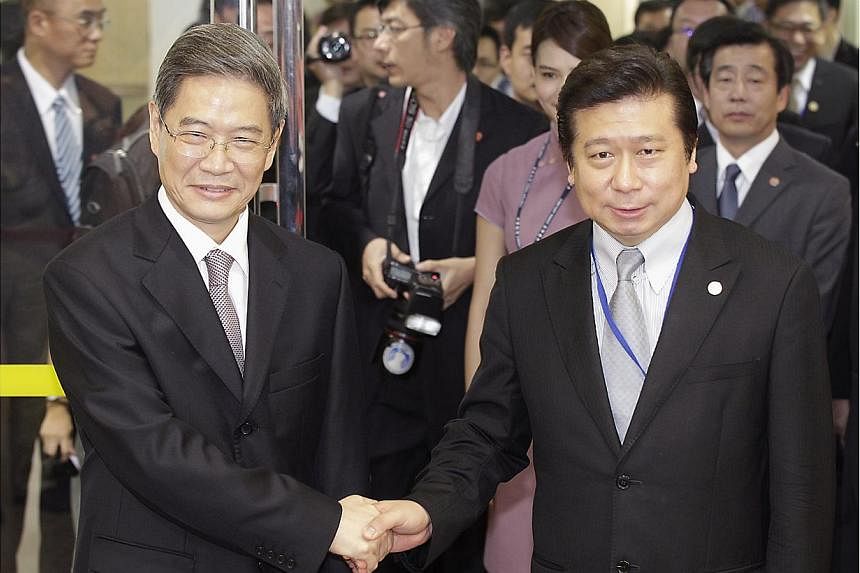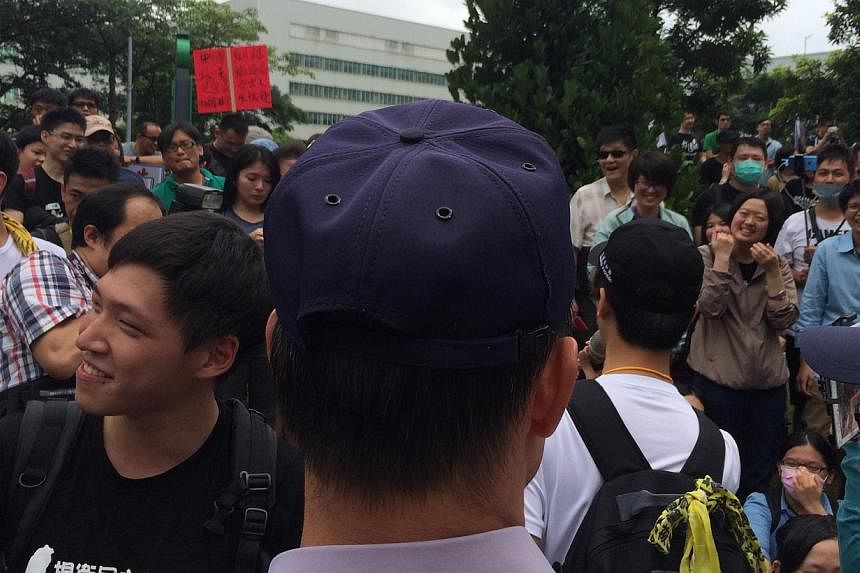CHINA'S first top Taiwan official to visit the island, arrived on Wednesday morning, where smiling officials, banner-waving protesters and international media alike waited - reflecting the challenges that the Jiangsu native will have to navigate on this unprecedented tour.
Mr Zhang Zhijun, director of China's Taiwan Affairs Office (TAO), will meet his counterpart, Mr Wang Yu-chi, Taiwan's Mainland Affairs Council (MAC) chairman, for talks in the afternoon.
This is the second official meeting between the two sides' chiefs of cross-strait affairs. The first was in February, when in a sign of warming ties, Mr Wang visited Nanjing and Shanghai, marking the first government-to-government contact between mainland China and Taiwan since the end of the civil war in 1949.
This time, both officials are meeting at the Novotel hotel next to the Taoyuan International Airport. While it is just a 45-minute car ride from Taipei, Mr Zhang will not be visiting the capital due to political sensitivities. Both sides till this day do not formally recognise the other, and the ancient Chinese adage han zei bu liang li - the legitimate government and the bandits cannot co-exist - continues to be in play in the fraught relationship.
Already, hundreds of protesters are waiting at the hotel. They range from members of the Falungong group which is banned in mainland China, to those waving the banner "Save Taiwan businesses". A group led by student activist leader Chen Wei-ting from the Sunflower movement which occupied the legislature in March to oppose a services trade pact shouted slogans while holding up placard that read "Taiwan's future, we will decide ourselves".
Policemen armed with shields and batons meanwhile stood on duty.
In the morning, they stormed two hotel rooms here, booked by members of a pro-independence group, according to reports in the local media.
In 2008, a visiting official from China's quasi-official Association for Relations Across the Taiwan Strait was assaulted while in Tainan, a pro-independence bastion close to Kaohsiung.
Mr Zhang is also visiting at a particularly sensitive time. The legislature is preparing to go into session to discuss a controversial services trade pact, ractification of which was stalled following a 23-day siege of the legislature and a massive rally led by the Sunflower student movement in March.
The movement successfully tapped into the fears of small businesses and local workers who worry that they will face increasing competition from the mainland. Others worry that China's expanding economic clout facilitates its spidering of political influence through the island.
Mr Zhang will have to show that he is trying hard to understand the concerns of these segments of society, while putting across Beijing's message of friendliness. Indeed, in a whirlwind tour over four days, he will be visiting three cities - Taiwan's most populous city New Taipei City, southern port Kaohsiung where residents tend toward pro-independence views, and Taitung in central Taiwan, commonly viewed as a swing state.
There, he will meet with a broad swathe of society, ranging from university students who often feel little cultural affinity with mainland China, to small and medium-sized businesses hurt by cheaper competitors from the mainland.
He will also speak with opposition Democratic Progressive Party heavyweight Chen Chu, mayor of Kaohsiung and viewed as a moderate within the pro-independence party.
Far less tractable about questions of Taiwan's political future. China maintains that it has a right to seize it back - by force, if necessary. The contentious issue came back to the fore, when a TAO spokesman said that Taiwan's future is up to "all Chinese people". Taiwan President Ma Ying-jeou retorted that it is up to the island's 23 million people instead.
Taiwan's MAC has said that the two sides will not discuss sensitive political issues, or sign any agreements on this trip.


